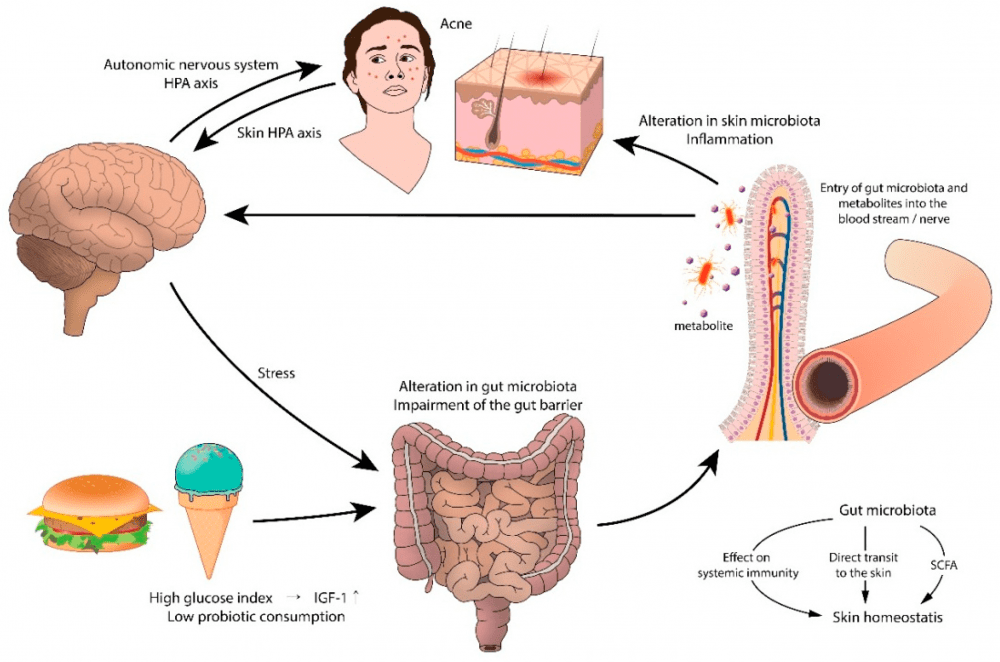The Gut Skin Axis
The gut-skin axis refers to the complex and dynamic relationship between the gut microbiota and the health of the skin. Recent research has demonstrated that there is a strong connection between the two, and that an imbalance in gut flora can lead to skin problems such as acne, rosacea, eczema, and psoriasis.
The gut microbiome is a collection of microorganisms that live in our digestive system. These microorganisms play a crucial role in maintaining our overall health by aiding in digestion, regulating metabolism, and supporting the immune system. However, when the gut microbiome is disrupted or imbalanced, it can lead to a wide range of health problems, including skin issues.
One of the primary ways in which the gut microbiome affects the skin is through the production of short-chain fatty acids (SCFAs). SCFAs are produced by certain types of bacteria in the gut, and they play a critical role in regulating inflammation in the body. Inflammation is a key driver of many skin conditions, and when the gut microbiome is imbalanced, it can lead to chronic inflammation that exacerbates skin problems.
Another way in which the gut microbiome affects the skin is through its role in regulating the immune system. The gut is home to the largest concentration of immune cells in the body, and the microbiome plays a crucial role in modulating immune function. When the gut microbiome is disrupted, it can lead to an overactive immune system that attacks healthy cells in the skin, leading to conditions like psoriasis and eczema.
In addition to these mechanisms, the gut-skin axis is also thought to be influenced by a number of other factors, including stress, diet, and environmental toxins. For example, stress has been shown to disrupt the gut microbiome and increase inflammation in the body, which can exacerbate skin problems. Similarly, a diet high in sugar and processed foods can disrupt the gut microbiome and lead to inflammation, while exposure to toxins like air pollution can damage the skin and exacerbate skin conditions.
Overall, the gut-skin axis is a complex and dynamic relationship that has far-reaching implications for our health and wellbeing. By understanding the connection between the gut microbiome and the skin, we can take steps to support gut health and reduce our risk of developing skin problems. This may include making dietary changes, reducing stress, and taking probiotics or other supplements to support gut health. By taking a holistic approach to our health, we can improve not only our skin, but our overall wellbeing as well.
Stay Healthy!
Dr. Bhavna

